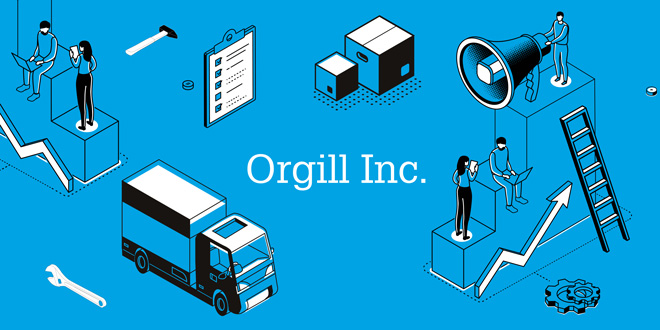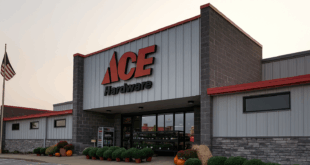Hardware Retailing asked distributors how they amended operations to best serve their customers during the initial phases of lockdown, including communication and supply chain logistics. Read the remarks from Orgill Inc.‘s president and CEO Boyden Moore below, and click here to read comments from other wholesaler representatives.
Hardware Retailing (HR): Obviously, the situation changes day to day, so it’s difficult to make a plan for many weeks into the future. What are your plans at this time to manage your supply chain or make changes to accommodate shortages, delays, etc.?
Boyden Moore (BM): Every day since early March, our management team has held an midday video conference huddle in which we review the safety and health of our employees, changes and new information on the supply chain, changes in the regulatory environment impacting Orgill and our customers, and feedback from conversations our sales team and senior management have had with our customers. These huddles are similar to how our team operates during natural disasters that impact our customers and/or supply chain from time to time. This national health and economic emergency, however, is much more intense and prolonged.
HR: How are you staying in communication with retailers and vendors?
BM: We moved very quickly to a remote work environment in every case possible. More than 85 percent of our employees at the home office are 100 percent remote now. We also have over 400 field sales representatives that are coordinating with our customers for their needs very directly—via phone, email and video conferencing. We’re also communicating often (many times each week) with our customers via email and through a resource area we’ve created on our website.
On the buying side, our merchants have been effective working with our vendors remotely. We have also created and shared documentation that supports vendors who are a part of our supply chain of “essential services” and were initially asked to close by local authorities.
HR: What are your recommendations/solutions to retailers for communicating to you about their operations or requests for products? Has the system for that changed?
BM: We are fortunate to have many points of contact with our retailers. Our sales team is the best starting point for most Orgill customers as they are closest to them and they have the most current product information from the appropriate distribution center. Also, our customer service team is fully functional and operating as normal with our regular service hours.
HR: How are you addressing high demand for certain products, like household cleaners and paper goods?
BM: Many manufacturers have been allocating products as a result of their inability to meet demand. In turn we often allocate those products so that as many of our dealers as possible have access to at least some products. We have turned to new vendors where possible to broaden our offerings and/or added an item that an existing vendor has in stock that we normally do not assort.
HR: What recommendations do you have for retailers to continue the supply chain through to their customers while keeping health and safety top of mind?
BM: Because we also operate as a national retailer through our CNRG stores, we have the chance to gain unique insights into what is happening in stores. So far, the trend we have noticed is that sales will respond positively when a state or local area begins to gain awareness of the crisis; this usually happens because some restrictions are put in place for the community. Then, as time passes and the severity of the crisis becomes more evident, restrictions become more onerous, and sales will tend to level off. Fortunately, hardware and home improvement retailers were allowed to remain open for business because they supply essential products for the safety, repair and sanitation of the home.
The best practice recommendations here involve constant communication with both customers and employees. Professional customers may have specific needs as they work to complete jobs in process, and retailers should reach out to key customers and help them plan. Retail customers need information as conditions change. Hardware retailers should use their most timely communication channels (usually email or social media) to update customers on changing store hours, product availability in general and limits on specific, high-demand items, new or expanded services (many CNRG stores are offering curbside delivery, for example), and safety practices. We have found that customers appreciate the opportunity to be able to hear about these things in “real time” so they can efficiently plan their time away from their homes. Of course, it is important that any communication to customers strikes a tone appropriate to the situation, as many customers are, understandably, very sensitive to retailers appearing opportunistic in a time of crisis.
There are many safety practices and precautions we have implemented in our brands or hear about from others. Some of these include customer control and queuing measures, like creating safe-distance lanes and spaces using tape and/or PVC, or appointment of a special greeter to limit access to more than a safe number of customers at any one time. Other measures include construction of temporary barriers to prevent spread of the virus, such as plexiglass shields in front of cashiers. And, of course, all retailers should have a specific plan in place for regular cleaning of their stores and a contingency plan for deep cleaning when faced with a more immediate risk which may present itself.
 Hardware Retailing The Industry's Source for Insights and Information
Hardware Retailing The Industry's Source for Insights and Information







